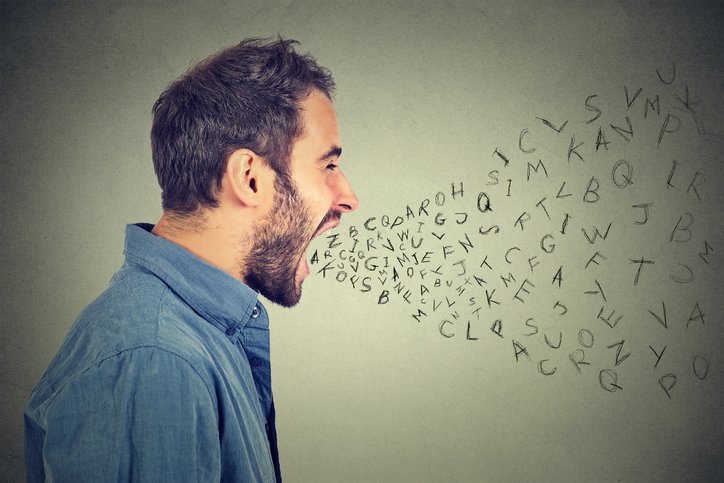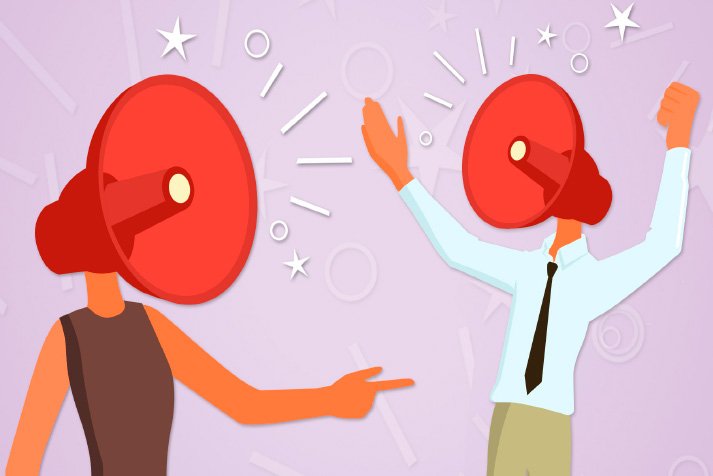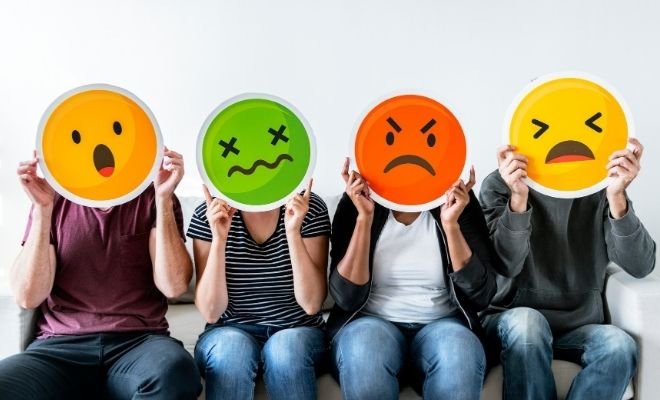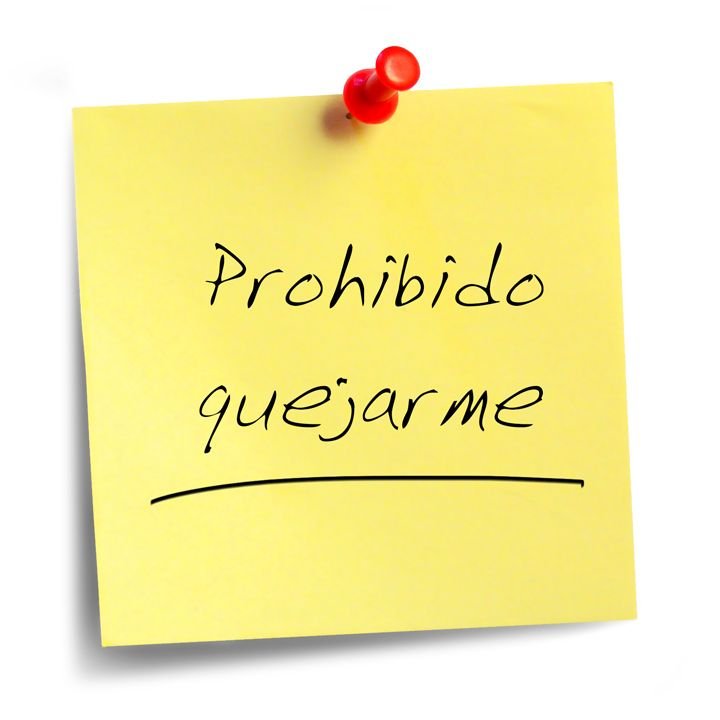
Alguien hace ya algún tiempo, en este caso fue un estudiante de medicina, con inclinaciones hacia la medicina alternativa, medicina natural, claro primero como es que se debe hacer, estudio en la universidad, lo que todo medico debe estudiar. El me dijo las siguientes palabras, no te quejes ni una vez, yo en lo particular decía el no me quejo en lo absoluto para que no me duela nada.
Someone some time ago, in this case it was a medical student, with inclinations towards alternative medicine, natural medicine, of course first as it should be done, I studied at the university, what every doctor should study. He told me the following words, do not complain even once, I in particular said I do not complain at all so that nothing hurts me.


Según la real academia de la lengua española, cito la fuente de su pagina web donde saque la información. la queja se define como la expresión con la voz la pena o el dolor que se siente. Manifestar el resentimiento que se tiene hacia otra persona, entre otras definiciones.

According to the Royal Academy of the Spanish Language, I quote the source of their website where I got the information. the complaint is defined as the expression with the voice the pain or sorrow that is felt. Manifesting resentment towards another person, among other definitions.


Cada día encontramos a personas que se quejan constantemente, y eso se vuelve un patrón de conducta, que muchas veces se convierte en algo subconsciente. Es decir, ya estamos programados para hacer de nuestra vida una queja, y si por momentos no nos quejamos, nuestro cerebro que ya esta acostumbrado a ese tipo de patrón de conducta, nos dirá que algo anda mal, es decir no hay quejas, y buscara la excusa para volver a quejarse. Esta información la leí en un libro llamado por favor sea feliz.
Every day we find people who complain constantly, and that becomes a pattern of behavior, which often becomes something subconscious. That is, we are already programmed to make our life a complaint, and if at times we do not complain, our brain, which is already accustomed to this type of behavior pattern, will tell us that something is wrong, i.e. there are no complaints, and will look for an excuse to complain again. I read this information in a book called please be happy.



Ahora siendo que la queja es algo que hemos aprendido y que nuestro cerebro esta acostumbrado a hacerlo, en mi opinión, lo que tenemos que hacer es reprogramarlo, para que no vuelva a hacerlo, o por lo menos reducir la incidencia a quejarse.
Según esta fuente https://www.areahumana.es/como-dejar-de-quejarse/ el quejarse trae consecuencias.
Favorece un estado de amino negativo, creamos un mal ambiente negativo llegando a ser un persona no deseada para aquellos que nos rodean.
La queja nos hace pasivos, ya que no vemos solución a los problemas y mucho menos pensamos en resolverlos.
Now being that complaining is something that we have learned and that our brain is used to do it, in my opinion what we have to do is to reprogram it so that it does not do it again, or at least reduce the incidence of complaining.
According to this source https://www.areahumana.es/como-dejar-de-quejarse/ complaining brings consequences. It favors a negative amino state, we create a bad negative environment becoming an unwanted person for those around us. Complaining makes us passive, since we do not see a solution to the problems and much less think about solving them.



Que se debe hacer para dejar de quejarse? Debemos usar el consciente.
Seguiremos con esta fuente Debemos identificar por que me quejo, cual es el motivo. Cual es el estado de animo que adquiero cuando estoy hablando, notar si me pongo triste, apagado, sin ganas de hacer nada. Una persona que no se queja ante los problemas y las situaciones generalmente, tiene buen humor, ve el problema, o los problemas como un reto.
Cuando estoy frente a las personas y tengo la tendencia a quejarme, analizar o pensar en lo que voy a decir, y tratar de hablar un poco mas positivo.
Al principio no será fácil, pero poco a poco nos iremos acostumbrando no quejarnos.

What must we do to stop complaining? We must use awareness.
We will continue with this source We must identify why I am complaining, what is the reason. What is the mood I am in when I am talking, notice if I become sad, dull, not wanting to do anything. A person who does not complain about problems and situations generally has a good mood, sees the problem or problems as a challenge.
When I am in front of people and I have a tendency to complain, I analyze or think about what I am going to say, and try to speak a little more positively.
It won't be easy at first, but little by little we will get used to not complaining.



Es interesante que otras fuentes, como la de la Clínica Universidad de Navarra
su pagina es esta
Se habla allí de la queja, pero no desde un punto de vista negativo, si no a nivel de comunicación en el matrimonio, en la vida familiar.
Es interesante que esta palabra tiene muchos enfoques en la vida, como el quejarse cuando tengo dolor, o cuando no estoy conforme con un servicio. Hoy quise hablar de la queja, desde el punto de visto negativo, que daña nuestro ambiente, nuestro cuerpo, ya que como me menciono el estudiante de medicina que cite al principio, que hoy ya es Doctor, no te quejes para que no te duela nada.

It is interesting that other sources, such as the one from the Clínica Universidad de Navarra
its page is this
They talk there about complaining, but not from a negative point of view, but at the level of communication in marriage, in family life.
It is interesting that this word has many approaches in life, like complaining when I am in pain, or when I am not satisfied with a service. Today I wanted to talk about the complaint, from the negative point of view, which damages our environment, our body, because as the medical student I mentioned at the beginning, who is now a doctor, told me, do not complain so that nothing hurts.

Espero que de aquí en adelante todos podamos hablar en positivo, y tratar de ayudar a otros a hacer lo mismo.
I hope that from here on out we can all speak positively, and try to help others do the same.

